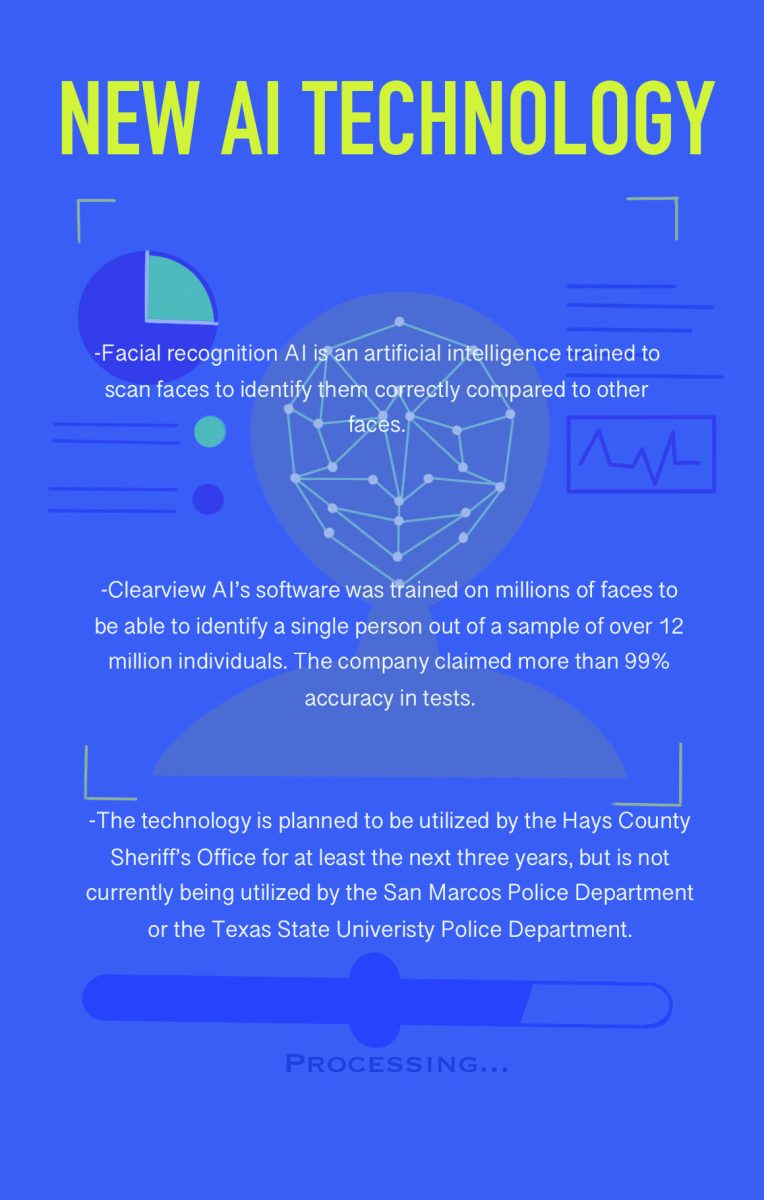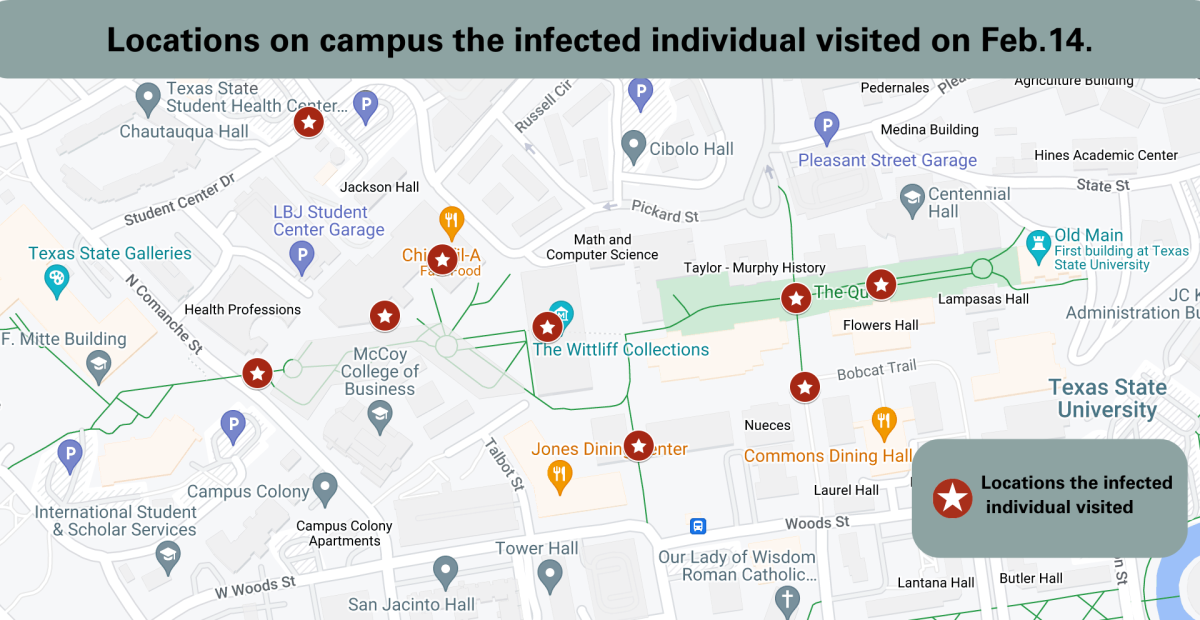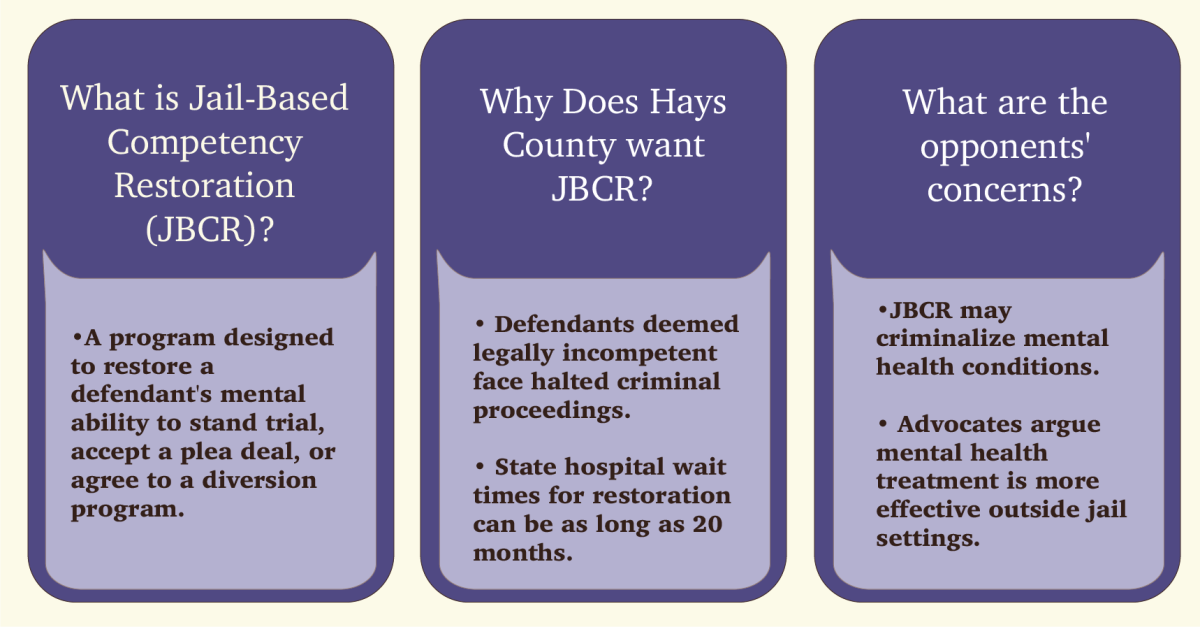The Hays County Commissioners Court approved a request from Sheriff Gary Cutler to allow the use of Clearview AI‘s facial recognition software.
The agenda item, which was approved unanimously on Dec. 5, allows the Hays County Sheriff’s Office to purchase a yearly license to use the artificial intelligence (AI) software for the next three years to help identify people from photographs and videos.
“I believe [AI] could be a useful tool in helping an investigation, but it can’t be the majority weight in determining guilt for any investigation,” Hays County Judge Ruben Becerra said.
The Hays County Sheriff’s Office will use the Clearview AI software for identifying potential suspects from photographs and recorded videos, but will not use it for monitoring live feeds. This technology could be used to verify reported sightings of suspects through CCTV footage or social media.
Many critics of facial recognition technology, such as The American Civil Liberties Union (ACLU), claim it has issues with lack of clarity on data storage policies and can misidentify people of color, especially women of color, but Becerra said his office is dedicated to ensuring the use of this new technology will only be in the public interest.
“[AI] can’t be the singular… way in determining guilt,” Becerra said. “It is important that we proceed with caution and I’m going to ensure that we have the office of the county judge on the record as reaching into the sheriff’s office and our county government to ensure we have sound policies.”
Hays County Chief of Staff Alexander Villalobos said he foresees the sheriff’s office trying to expand the use of the facial recognition AI to be used on more than just photographs and video, but the county will make sure the Sheriff’s Office maintains transparency in its use.
“If [AI] is going to be used inappropriately, the court can call for an inquiry or investigation into the over-usage and ask questions in that matter,” Villalobos said. “[The sheriff] is obligated to come and answer those questions.”
While Hays County is experimenting with the use of facial recognition in law enforcement, the technology has not made its way to Texas State.
“Right now we can’t afford nor do we have the technology,” University Police Chief Matthew Carmichael said. “There is no discussion right now to have that.”
Carmichael said he believes in the right hands, AI could be a powerful tool for law enforcement, but also expressed concern on how the data could be used.
“It serves its place, but there’s a balance with our freedom,” Carmichael said. “And so it’s about balance of our freedom, how the data is utilized. I think the ACLU has some good information on not only facial recognition, but best practices on data storage.”
According to Carmichael, while the University Police Department (UPD) does not currently have plans to acquire facial recognition technology, he does see the possibility for UPD to utilize the sheriff’s AI.
Carmichael said while UPD does not currently own a license to any sort of AI, the city of San Marcos uses a technology similar to facial recognition called License Plate Recognition (LPR) to read license plates.
“[LPR] is all across the country where it helps identify suspect vehicles,” Carmichael said. “I can call our friends [in] San Marcos and ask the [police chief] ‘Hey, can you enter this license plate in this into your system because it was used in a crime?'”
According to the city of San Marcos’ website, the city only uses LPR for parking enforcement and not to search for warrants or other law enforcement purposes.
Becerra and Villalobos both seemed open to the idea of finding uses for AI to assist in aspects of governance, such as finance, the writing of documents and research, but always with a person to fact check the information from the AI.
“I am a huge supporter of using AI for the mundane, the reality of government,” Becerra said. “I feel the creative aspects of our coworkers can be further supported by AI and additional perspectives brought to light with the support of AI, but never to take the place of any function that we do as a government.”
Hays County Sheriff’s Office did not respond for comment.





















